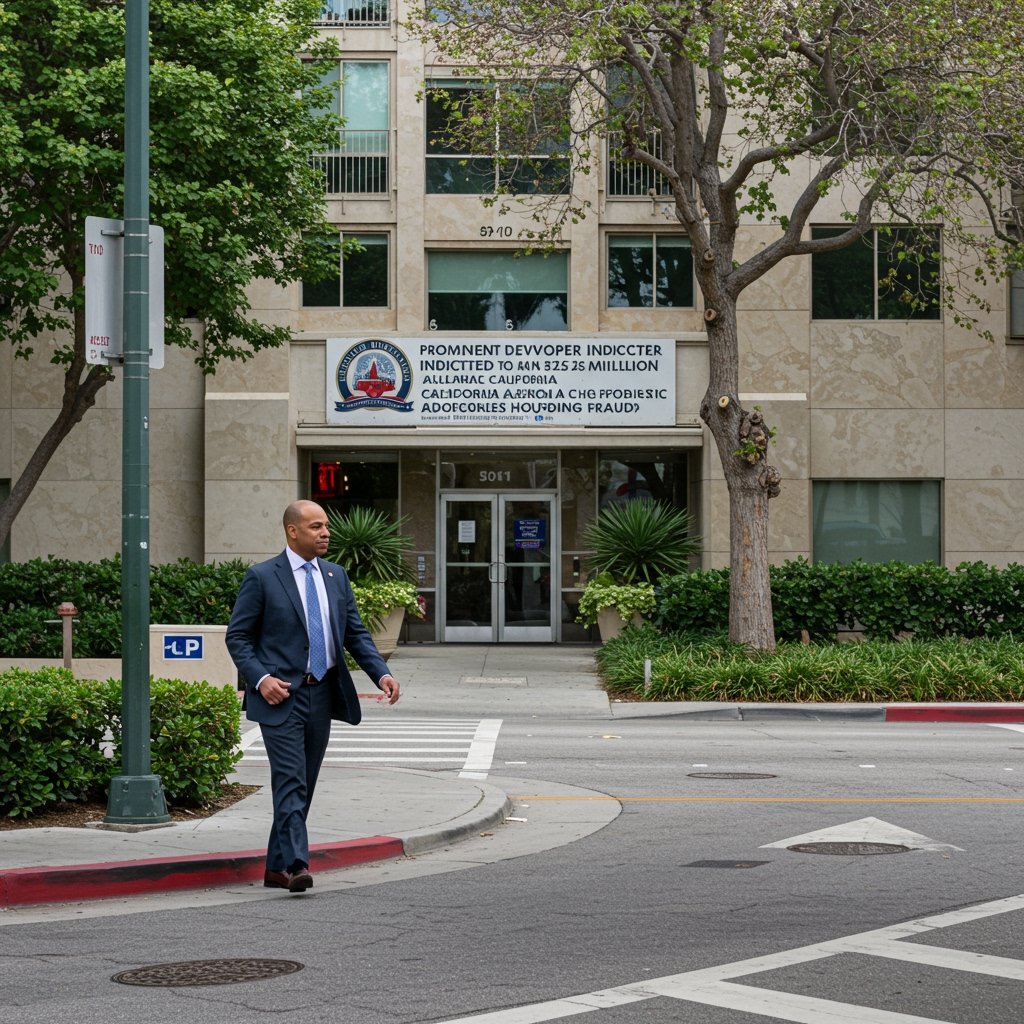Prominent Developer Indicted in Alleged $25 Million California Affordable Housing Fraud
A federal grand jury sitting in California’s Northern District delivered an indictment on March 17, 2025, against Marcus Thorne, a prominent real estate developer known for his extensive work across the region. The indictment levels serious charges against Thorne, specifically alleging counts of wire fraud and conspiracy. At the heart of the government’s case is the accusation that Thorne orchestrated the diversion of approximately $25 million in funds. These substantial funds were reportedly designated for the California Affordable Housing Initiative (CAHI) program, a critical state effort aimed at addressing the severe housing crisis by developing urgently needed low-income housing projects, particularly within the high-cost Bay Area.
The indictment alleges that the $25 million, earmarked for vital affordable housing developments, was systematically redirected by Thorne. Instead of flowing towards construction costs, land acquisition, or other legitimate expenses associated with building housing under the CAHI program, the funds were allegedly channeled into a network of shell corporations controlled by Thorne. Prosecutors contend that this intricate scheme was designed to illicitly enrich Thorne and potentially others involved, diverting resources intended for public benefit into private hands.
Origins of the Investigation
The federal investigation culminating in Thorne’s indictment reportedly gained significant traction following the publication of a State Audit Office report in late 2024. This comprehensive audit of state housing programs, including CAHI, flagged a series of financial discrepancies and irregularities related to projects associated with entities linked to Marcus Thorne. The audit report, while not directly accusing any individual, highlighted suspicious transaction patterns and a lack of clear documentation regarding the expenditure of significant CAHI funds. The findings of the State Audit Office served as a crucial catalyst, prompting federal authorities, including the FBI and the U.S. Attorney’s Office for the Northern District of California, to launch a full-scale investigation into the potential misuse of public funds.
Investigators have since been meticulously tracing the flow of the alleged $25 million, reportedly uncovering evidence that supports the theory of intentional diversion. The use of shell corporations, as alleged in the indictment, is a common tactic in financial fraud schemes designed to obscure the true source and destination of illicit funds, making them appear legitimate or untraceable. Authorities will likely present evidence demonstrating how these shell entities were allegedly used as conduits to move the $25 million away from its intended purpose under the CAHI program.
Impact on Affordable Housing in the Bay Area
The alleged siphoning of $25 million represents a significant blow to the California Affordable Housing Initiative, particularly given the critical need for low-income housing in the Bay Area. This region faces one of the most acute housing crises in the nation, with soaring rents and property values making it increasingly difficult for low and middle-income families to find stable, affordable places to live. The CAHI program was specifically designed to provide financial incentives and support to developers willing to undertake projects that address this urgent need.
Funds allocated to CAHI are meant to subsidize construction costs, acquire land, or provide other forms of financial assistance that make affordable housing projects financially viable in an expensive market. The diversion of $25 million means that numerous potential housing units that could have been built, renovated, or supported by these funds are now potentially delayed, canceled, or left unfunded. This directly impacts individuals and families waiting for access to affordable housing, exacerbating an already challenging situation.
Legal Process and Next Steps
The indictment by a federal grand jury signifies that a group of citizens has reviewed evidence presented by prosecutors and determined that there is probable cause to believe a crime was committed by Marcus Thorne. This is the formal process by which felony criminal charges are brought in the federal system. The specific charges of wire fraud typically involve using interstate wire communications (such as emails, phone calls, or electronic money transfers) in furtherance of a scheme to defraud. Conspiracy charges allege that Thorne entered into an agreement with one or more other individuals to commit a crime.
Following the indictment, Marcus Thorne will be formally arrested and is expected to be arraigned in federal court in the Northern District of California. During the arraignment, he will be formally presented with the charges and will enter a plea, typically not guilty at this stage. The case will then proceed through pretrial motions, discovery (where prosecution and defense exchange evidence), and potentially plea negotiations. If no plea agreement is reached, the case would proceed to trial before a jury.
Ongoing Investigation
Authorities have emphasized that the investigation into the alleged $25 million fraud scheme is ongoing. While Marcus Thorne is the first individual indicted in this probe, the U.S. Attorney’s Office stated that the investigation may involve other individuals. This suggests that prosecutors and federal agents are continuing to look into the possibility that Thorne did not act alone and that other persons or entities may have participated in or facilitated the alleged scheme to divert CAHI funds.
The scope of the ongoing investigation could potentially expand to examine other projects or programs handled by Thorne or his associated companies, as well as scrutinizing the roles of any individuals or entities that facilitated the alleged financial transactions or the operation of the shell corporations. The outcome of this investigation and subsequent legal proceedings will be closely watched, particularly by those concerned with housing affordability and the integrity of public funding for critical social programs in California.


















